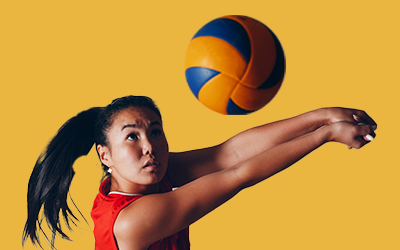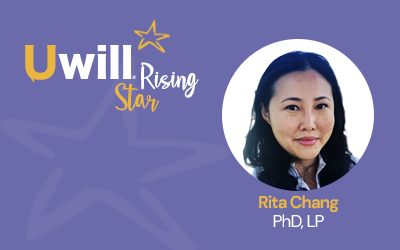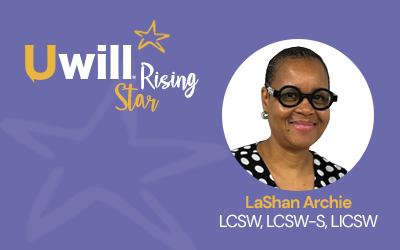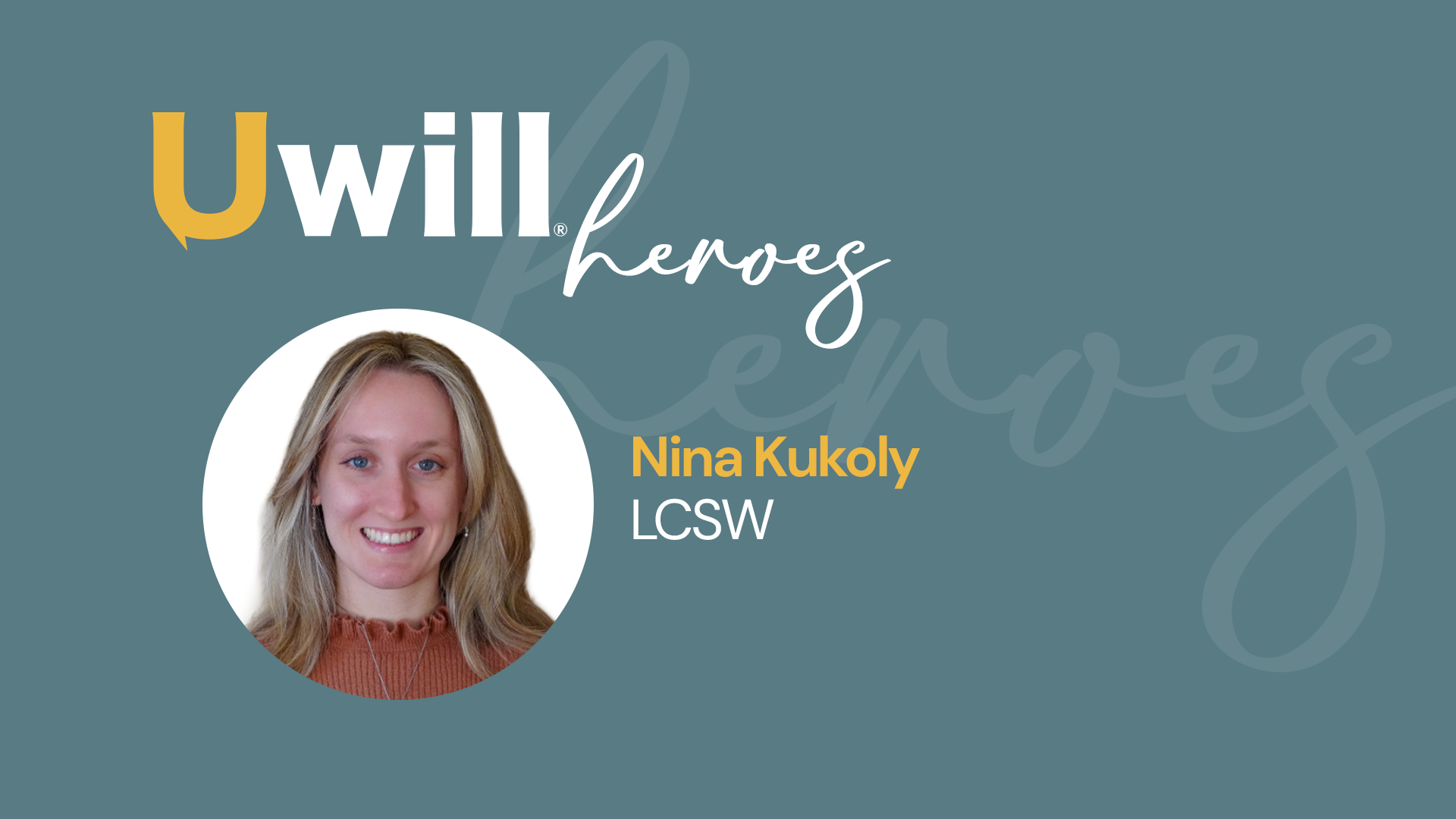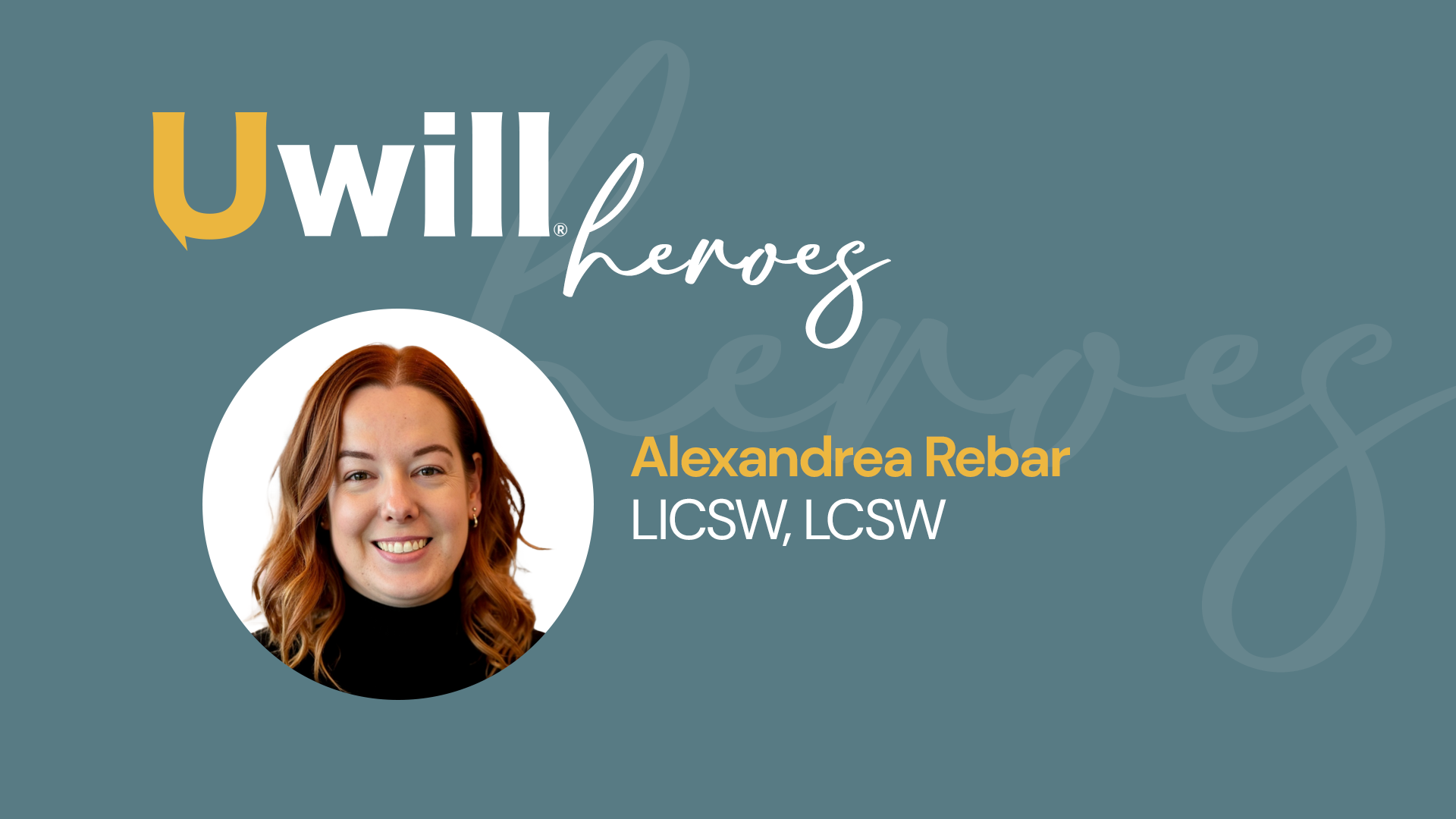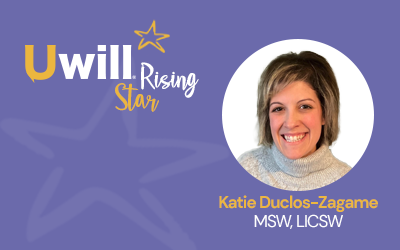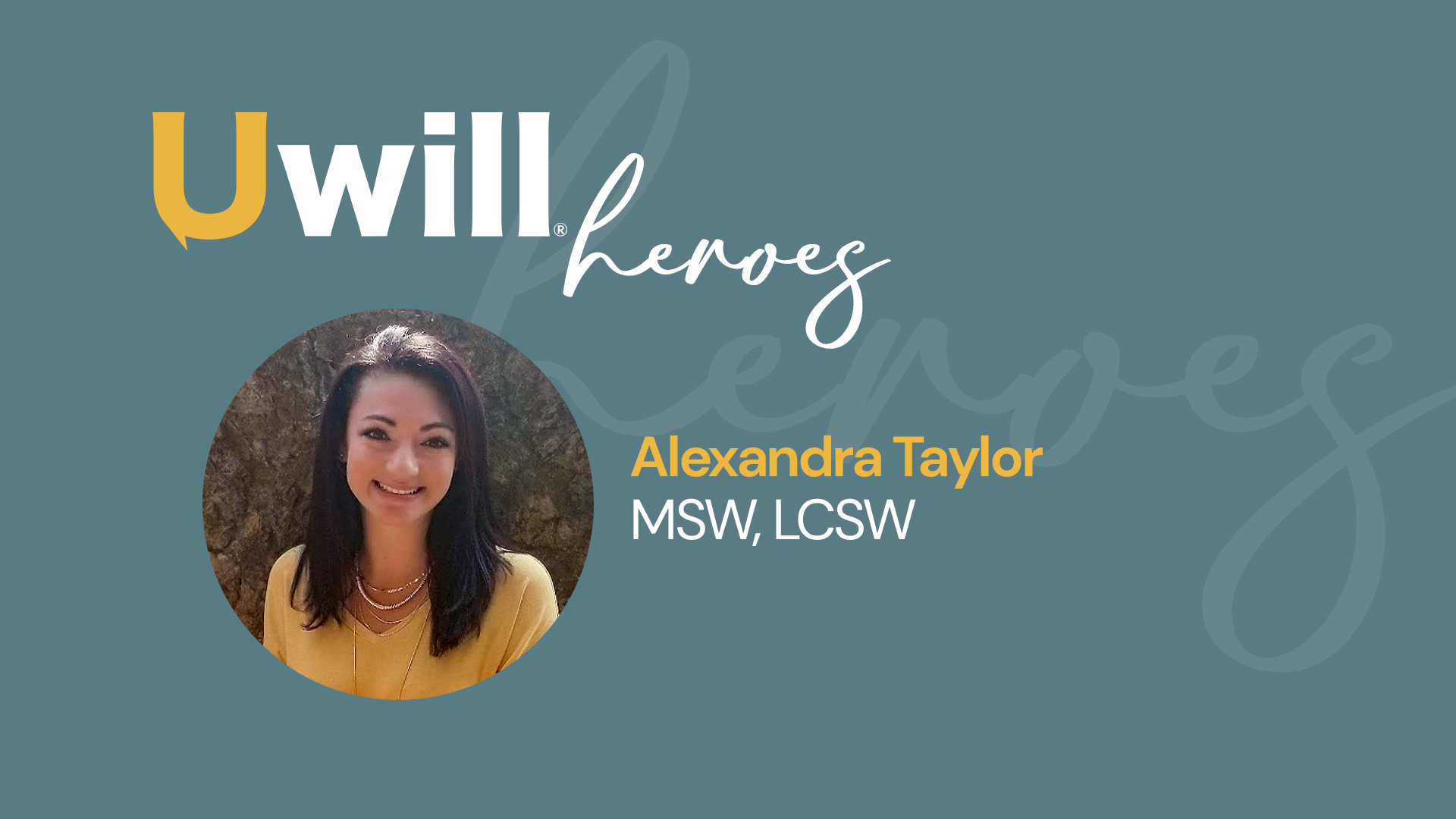Tackling Mental Health with High School Student-Athletes
Each year, more than eight million high school students across the United States participate in a sport outside of the classroom, often in high-pressure environments. These student-athletes work hard in and out of the classroom to study and train. High school sports provide students with an outlet for exercise and a space to build teamwork and leadership skills. However, participating in high school athletics can also increase anxiety, depression, and eating disorders while reducing the quality and amount of sleep student-athletes receive each night. Recent research from the British Journal of Sports Medicine also highlights the stressors that high school student-athletes face, which often remain unseen and untreated, and elite athletes have even been classified as high-risk for mental health disorders.
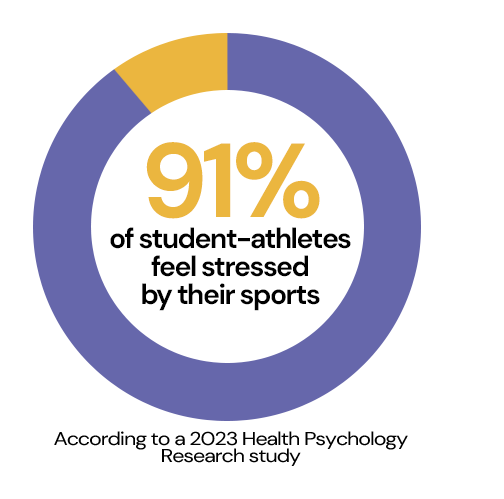 According to a 2023 Health Psychology Research study, more than half of high school student-athletes reported feeling at least moderately stressed, and 91% of student-athletes reported some level of stress. These stressors originate on the field or court from a variety of sources, including performance, coaches, and college recruitment, but their impact extends into the classroom. Among surveyed high school student-athletes, a report in the British Journal of Sports Medicine highlighted how eating disorders, anxiety, and depression were the most common mental disorders. Each of these conditions impacts every aspect of a student’s life, and, broadly speaking, students lack the training to handle the mental health issues they face in their daily lives alone.
According to a 2023 Health Psychology Research study, more than half of high school student-athletes reported feeling at least moderately stressed, and 91% of student-athletes reported some level of stress. These stressors originate on the field or court from a variety of sources, including performance, coaches, and college recruitment, but their impact extends into the classroom. Among surveyed high school student-athletes, a report in the British Journal of Sports Medicine highlighted how eating disorders, anxiety, and depression were the most common mental disorders. Each of these conditions impacts every aspect of a student’s life, and, broadly speaking, students lack the training to handle the mental health issues they face in their daily lives alone.
Additionally, high school student-athletes do not get enough sleep. According to the American Academy of Pediatrics, 73% of students attain insufficient sleep—less than eight hours a night. That figure can be even lower for student-athletes due to their demanding schedules. Poor sleep is common for student-athletes as they often have early and late training sessions, resulting in a higher likelihood of mental health challenges. In particular, habitual poor sleep can be incredibly detrimental:
According to the American Academy of Pediatrics, 73% of students do not get enough sleep.
Once a person gets into this phase of not having good quality sleep, those effects can become cumulative over time,” says Amaura Kemmerer, LICSW, Director of Clinical Affairs at Uwill.
Further, another risk student-athletes face is injury. In addition to the physical challenges of injuries, there are also emotional risks. For many students, their identity as an athlete is a core part of who they are.
“If there’s an injury that takes them out of competition, even temporarily, it can lead to student-athletes questioning, ‘who am I?’” says Kemmerer.
Parents, faculty, and coaches should watch out for signs of mental health challenges among injured athletes, such as isolation, crying, or a change in character. Recruiting stress can also intersect with injuries. Many students rely on athletics to continue their education, and a substantial injury can affect a student-athlete’s potential for recruitment. If a student-athlete suffers a physical injury, it can yield physical and emotional setbacks for the player.
Unfortunately, most student-athletes do not seek mental health treatment; in fact, only 10% of student-athletes seek care, and even fewer receive any form of treatment. In the athletic world, there is still stigma surrounding mental health, leading athletes to avoid seeking care. Further, student-athletes are busy; most go straight from classes to practices or games while many endure additional travel to do so, leaving no bandwidth to find mental health support. Between jam-packed schedules and limited counselor availability, the few student-athletes looking to speak with a therapist often fail to find sufficient resources. Many student-athletes turn to their coaches for guidance and support throughout the day, but most coaches are not licensed mental health professionals, and the coaches themselves can often be the source of stress for student-athletes.
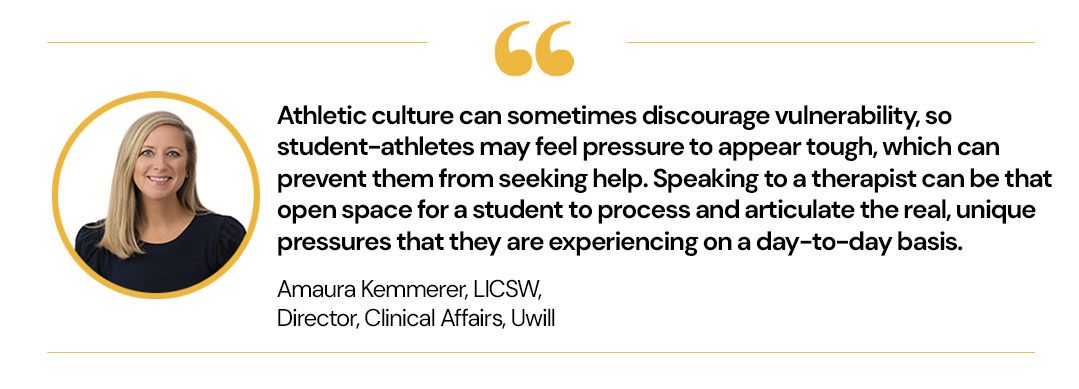
Further, research shows that athletes tend to have misconceptions about therapy; many lack a strong understanding of how their mental health impacts their performance. Though working out has substantial mental health benefits, elite athletics, even at the high school level, can potentially compromise mental and physical well-being over time. Schools are uniquely well-positioned to serve as a supporting entity for student-athletes if they have the proper resources to treat them.
How Uwill Can Help
Uwill allows students to meet with a licensed therapist of their choice at a time that fits their schedule. Often, student-athletes are too busy to speak with school therapists during the school day, creating a barrier to care. Uwill’s guaranteed availability allows student-athletes to find and receive care at their time and place of choosing, including nights, weekends, holidays, and school breaks. Within five minutes, students can register on the platform, fill out their preferences, and speak with a licensed counselor through several modalities, including video, phone, chat, and messaging.
 Further, should student-athletes have a triggering moment, such as an injury diagnosis or panic attack about recruiting, Uwill’s 24/7/365 crisis line can support students and keep them safe while speaking with a licensed counselor trained in trauma. In turn, this allows schools to empower their student-athletes to perform at their peak while prioritizing their overall well-being.
Further, should student-athletes have a triggering moment, such as an injury diagnosis or panic attack about recruiting, Uwill’s 24/7/365 crisis line can support students and keep them safe while speaking with a licensed counselor trained in trauma. In turn, this allows schools to empower their student-athletes to perform at their peak while prioritizing their overall well-being.
By partnering with Uwill, institutions can ensure comprehensive mental health support that meets the unique demands of student-athletes’ lives. Student-athletes’ mental health should be a priority for K12 institutions, and Uwill is the leading mental health and wellness solution for students.
If you are looking for help:
If you are looking to bring Uwill to your organization:
Share this:
![]()
Uwill is a Teletherapy Educational Partner of NASPA
![]()
Uwill is the Exclusive Teletherapy Education Partner of the Online Learning Consortium
Resources

Copyright © 2026 Uwill | 1075 Worcester St, Natick, MA 01760 | 833-99-Uwill
